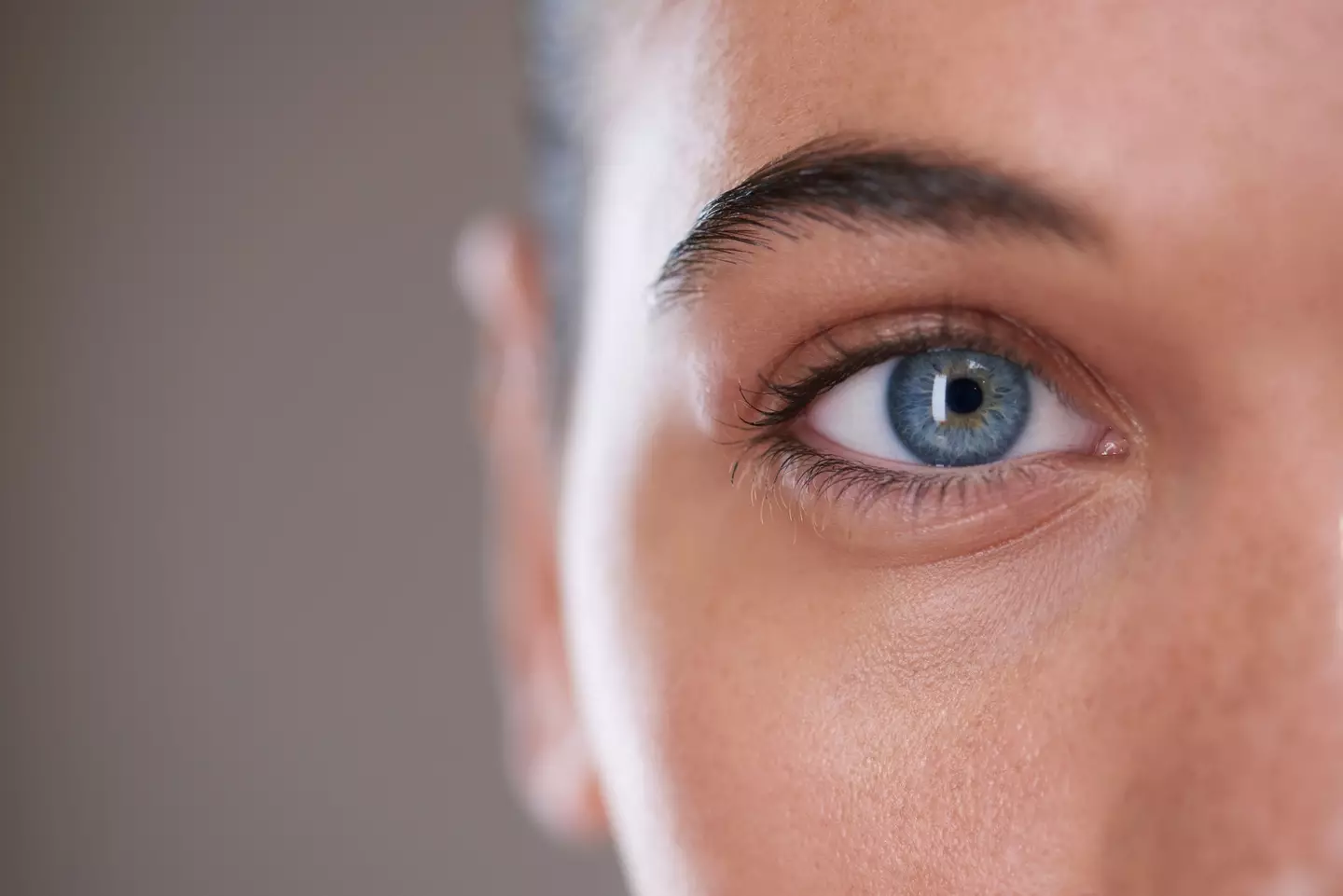Have you ever looked up at a clear sky or a blank wall and noticed strange little smudges or squiggly lines floating in your vision? These odd visual distortions, known as “floaters,” can be puzzling and sometimes annoying. While they are common and often harmless, health experts suggest that it’s worth paying attention to them, as certain types of floaters may signal a serious eye condition. Here’s everything you need to know about floaters, their causes, and when you should seek medical attention.

It’s important to keep check of your eye health (Getty Stock Image)
What Are Eye Floaters? Understanding the Basics
Floaters appear as small shadows or shapes that seem to drift across your vision. According to Dr. Daniel Polya, from the Royal Australian and New Zealand College of Ophthalmologists, floaters are caused by the condensation of collagen fibers in the vitreous, the clear, gel-like substance that fills about 80% of the eye.
“It’s the condensation of collagen fibers,” explains Dr. Polya. “Large molecules of collagen can clump together, casting shadows on your retina, which you perceive as floaters.”
These clumps of collagen create shadowy shapes that can take various forms—dark blobs, squiggly lines, or thread-like strands. While floaters may seem more prominent when looking at a bright, blank background, they are often harmless and a natural part of aging.
What Do Floaters Mean? When to Be Concerned
Floaters are common and typically harmless, but in some cases, they can be a sign of a more serious condition. One such condition is Posterior Vitreous Detachment (PVD), a process that occurs as the vitreous gel changes in consistency and separates from the retina. Dr. Polya notes that while PVD is usually a benign change, in some cases, it can lead to complications.
“For those that get PVD, there’s about a 5% chance of developing a tear in the retina, and if a tear occurs, there’s a 50% chance of retinal detachment,” Dr. Polya explains. Retinal detachment is a more severe condition where the retina begins to pull away from the supportive tissue, which, if left untreated, can lead to permanent vision loss.
Signs That Your Floaters Might Signal a Serious Condition
While most floaters are harmless, new or sudden changes in floaters should not be ignored. Here are some warning signs that may indicate a retinal problem:
- A sudden increase in floaters: If you notice a sudden “shower” of floaters, it could indicate a retinal tear or detachment.
- Flashes of light: Flashing lights or a sensation of light in your peripheral vision, especially alongside new floaters, may be a symptom of retinal detachment.
- A dark shadow or “curtain” over your vision: This is a serious symptom that could indicate a progressing retinal detachment and requires immediate medical attention.

Ever get these? (Getty Stock Image)
What Is Posterior Vitreous Detachment (PVD)?
PVD is a common condition, especially in people over the age of 50, and occurs when the vitreous gel pulls away from the retina. In most cases, it is harmless and doesn’t lead to any lasting damage. However, because the vitreous is attached to the retina, there is a slight risk that this separation process can cause a retinal tear.
“A retinal tear is still treatable with laser surgery,” says Dr. Polya. “But this is why it’s so important to catch it early, as there can be further damage if left unchecked.”
When to See an Eye Doctor About Floaters
While some floaters are normal, Dr. Polya emphasizes the importance of visiting an optician or ophthalmologist if you experience new or sudden floaters. “It’s so important to see an optician when a floater first appears,” he advises.

Treatment Options for Floaters
For most people, floaters become part of their everyday visual experience, and they learn to ignore them. However, if floaters become particularly large or bothersome, there are treatment options available, albeit with some risks:
- Laser Vitreolysis: This procedure uses a laser to break up large floaters into smaller, less noticeable pieces. While it can help improve vision clarity, it comes with potential risks, such as retinal damage, and is not suitable for everyone.
- Vitrectomy: A more invasive option, vitrectomy involves surgically removing the vitreous gel and replacing it with a saline solution. Although effective, it carries higher risks, including infection and retinal detachment, making it generally a last-resort option for patients with severe floaters.
How to Reduce Eye Floaters Naturally
While there is no foolproof way to prevent floaters, adopting certain habits can promote overall eye health and potentially reduce the likelihood of developing significant floaters:
1. Stay Hydrated
Dehydration can affect the eyes and may exacerbate the appearance of floaters. Drinking adequate water helps maintain the eye’s natural balance and keeps the vitreous gel healthier.
2. Consume Antioxidant-Rich Foods
A diet rich in antioxidants, such as leafy greens, berries, and nuts, supports eye health and may help slow age-related changes in the eye. Vitamins C and E, as well as zinc and beta-carotene, are particularly beneficial.

3. Protect Your Eyes from UV Rays
Exposure to UV light can accelerate eye aging, leading to conditions like cataracts and possibly increasing the likelihood of floaters. Wear sunglasses with UV protection to shield your eyes from harmful rays.
4. Get Regular Eye Check-ups
Routine eye exams can help detect early signs of retinal issues and other eye conditions. If you are over 50 or have a family history of eye conditions, consider annual check-ups to monitor any changes.
The Bottom Line: Pay Attention to New Floaters
Seeing floaters is generally normal, especially as you age, but sudden or large changes in floaters should not be ignored. While most floaters are benign, they can sometimes signal more serious underlying issues, such as retinal tears or detachment. By keeping an eye on new developments and scheduling regular check-ups with your optometrist, you can protect your vision and address any issues early.
In summary, while the occasional floater may simply be an inconvenience, a sudden increase or appearance of flashes should prompt a visit to your eye doctor. Staying vigilant with your eye health can make all the difference in maintaining clear vision and preventing potential complications.


